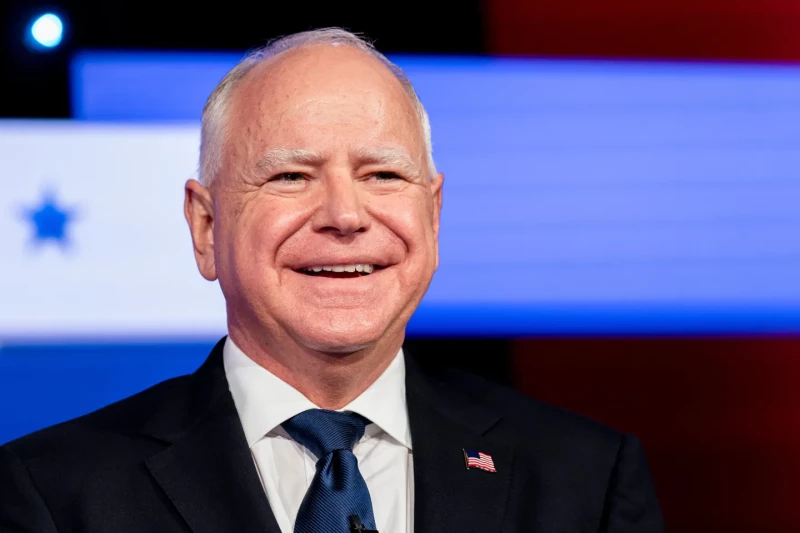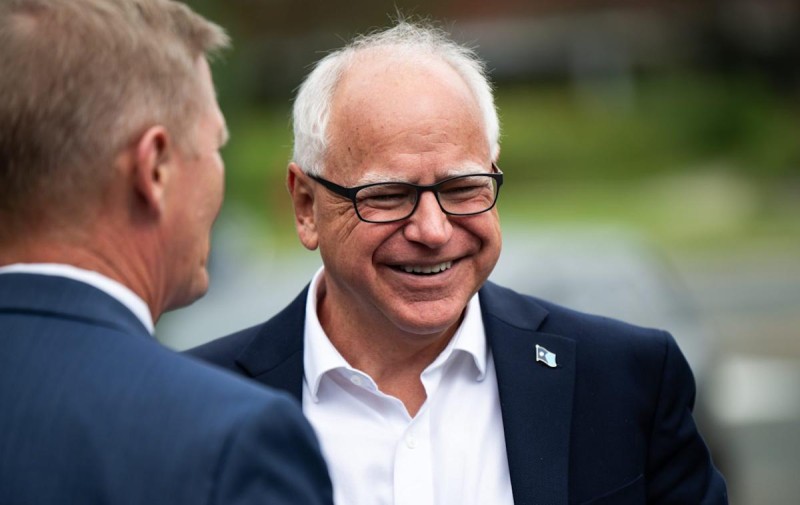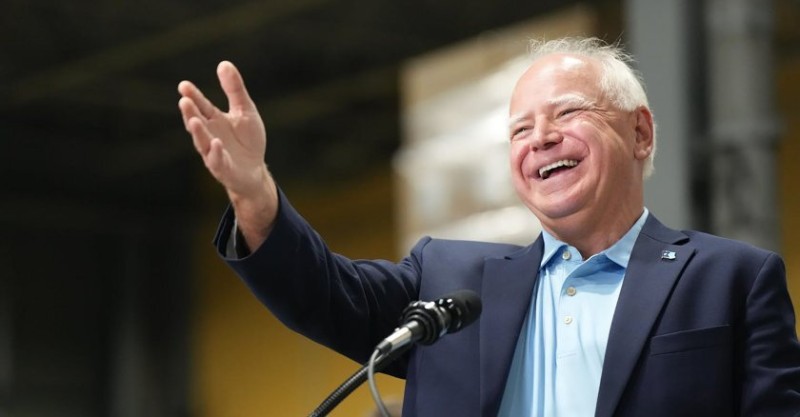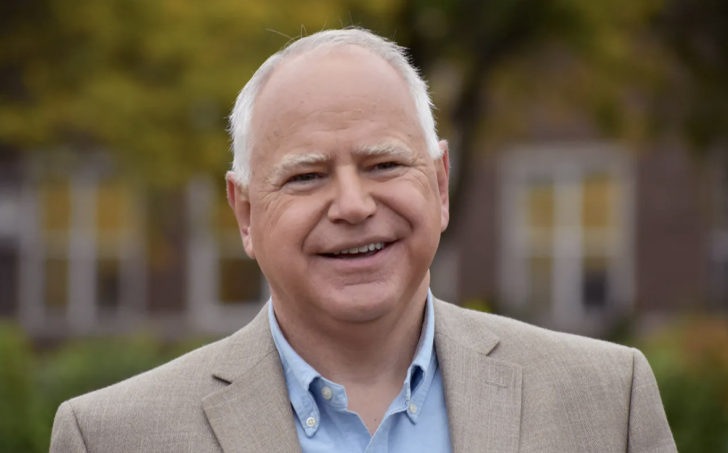Timothy James Walz was born on April 6, 1964, in West Point, Nebraska, to a working-class family that knew the value of a dollar. His father, James Frederick Walz, was a teacher and school superintendent who'd served in the U.S. Army during the Korean War, while his mother, Darlene Rose Reiman, was a homemaker who grew up on a farm. Growing up in Valentine, Nebraska—a tiny rural town near the South Dakota border—young Tim learned early on that hard work and helping your neighbors weren't just nice ideas, they were a way of life.
How Tim Walz Got His Start: First Jobs and Finding His Path

Right out of high school, Walz joined the Army National Guard and picked up work at a factory. Like a lot of young people trying to figure things out, he bounced around different jobs before landing a temporary teaching gig at the Native American Reservation in Pine Ridge, South Dakota. That's where everything clicked for him—he realized he wanted to follow in his dad's footsteps and become a teacher.
In 1989, Walz graduated from Chadron State College with a bachelor's degree in social science education. That same year, his National Guard service earned him the Nebraska Citizen-Soldier of the Year award. But here's where things get interesting: right after college, he headed to China to teach high school through a Harvard University program, becoming one of the first American teachers officially allowed to work in Chinese high schools. Not exactly the typical post-college path, but it gave him a completely different perspective on education and the world.
Making a Living as a Teacher: What Walz Actually Earned

When Walz came back to the States, he started teaching geography in Alliance, Nebraska. That's where he met Gwen Whipple, an English teacher who'd eventually become his wife. They got married in 1994 and moved to Mankato, Minnesota in 1996, where they both landed jobs at Mankato West High School. Walz taught social studies and coached the school's football team, quickly becoming the kind of teacher kids actually remember years later.
He wasn't just good at it—he was recognized for it. Walz won the 2002 Minnesota Ethics in Education award, was named 2003 Mankato Teacher of the Year, and received the 2003 Minnesota Teacher of Excellence award. But let's be real: teaching awards don't pay the mortgage. As a public school teacher in Minnesota, Walz made a decent but far from impressive salary—pretty standard for educators who do some of society's most important work. By 2019, Gwen was earning income from a Minnesota public school and law firm Hogan Lovells, with her teaching salary hovering around $51,000 a year.
The whole time, Walz kept serving in the Army National Guard. He put in 24 years before retiring in spring 2005 as a Command Sergeant Major from the 1-125th Field Artillery Battalion—that's as high as you can go in the enlisted ranks.
Tim Walz Net Worth: When Politics Became His Career

Politics first caught Walz's attention in 2004 when he volunteered for John Kerry's presidential campaign. But what really pushed him to run himself was getting kicked out of a George W. Bush rally with his students—that stuck with him. In 2006, he decided to run for the U.S. House of Representatives and actually beat the Republican incumbent, Gil Gutknecht, flipping Minnesota's 1st District from red to blue.
From 2007 to 2019 in Congress, Walz pulled in the standard congressional salary, which ranged from about $169,300 to $174,000 during those years. Not bad, right? But here's the thing—he wasn't exactly socking away millions. In 2018, he ran for Minnesota governor and won, then got reelected in 2022. As governor, he makes $127,629 a year. And get this—when they offered him a raise in 2023, he turned it down. Just said no thanks and kept his salary the same.
Where Tim Walz Net Worth Stands Today

So here's the bottom line on tim walz net worth: as of 2024, he's worth somewhere between $117,000 and $330,000, with most of that money tied up in retirement accounts. That's it. No stock portfolio, no bonds, no real estate investments—basically none of the stuff most politicians have.
Looking at their 2023 tax returns, the Walz family brought in about $299,000 total, with $135,000 coming from pensions and annuities. His biggest assets? The pensions he built up through years in the military, teaching, and Congress. Financial analysts figure his federal pension alone could be worth up to $800,000, though that's not exactly cash in hand.
Here's something that shows his priorities: back in 2019, Walz and his wife sold their house for $304,000 when they moved into the Governor's Mansion. They'd bought it for $145,000 back in 1997, so they made some money on it, but nothing crazy. Then Walz withdrew $135,000 from his retirement savings to pay for his daughter Hope's college—basically putting his kid's education ahead of his own retirement nest egg.
Want some perspective? JD Vance, the Republican VP candidate, is worth somewhere between $4.8 million and $11.3 million. Vice President Kamala Harris has about $8 million to her name. And Donald Trump? We're talking billions. Tim Walz's net worth makes him look more like your average American family than a typical politician.
What Tim Walz Believes About Real Success

Throughout his whole career, Walz has lived by a pretty straightforward idea: success isn't about getting rich, it's about making a difference. He tells people thinking about public service to embrace the work itself—it's about serving others, not personal gain. Go into it committed to actually improving your community and country.
He also talks about building resilience, saying public service gets tough, and you've got to roll with the punches. Learn from what happens, adapt when things change, and keep your eyes on what you're trying to accomplish. Plus, he's big on teamwork—you can't do this stuff alone, and real leadership means showing others how it's done by doing it yourself.
Walz's approach has been called "pragmatic progressivism"—he sticks to his values but stays practical about getting things done. His years in the classroom taught him some lessons that stuck. Teaching showed him that empathy, patience, and being able to adapt are what really matter when you're trying to lead people.
One of his quotes really sums up how he thinks about governing: "We have an opportunity in Minnesota to replace the current failed policy with one that creates tax revenue, grows jobs, builds opportunities for Minnesotans, protects Minnesota kids, and trusts adults to make personal decisions based on their personal freedoms." He's also famous for saying "you don't win elections to bank political capital—you win elections to burn political capital and improve lives." In other words, if you get elected, actually do something with it.
The story of Tim Walz—from teaching kids in a small Nebraska town to running Minnesota—shows that success doesn't have to mean building up a huge bank account. His modest tim walz net worth tells you everything about the choices he's made: a life spent in classrooms, military service, and government work for modest paychecks. For a lot of Americans struggling with their own bills and student loans, there's something refreshing about a politician who's been there too. He might not be rich, but he's built something money can't buy—a reputation for actually giving a damn about regular people.
 Usman Salis
Usman Salis

 Usman Salis
Usman Salis


